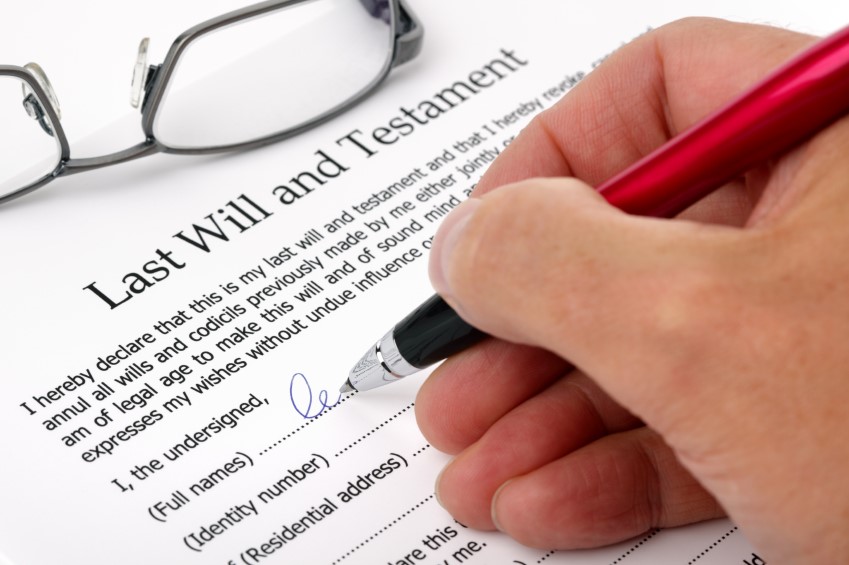
When someone dies, it is sometimes the case that their family or relatives are unhappy with the Will. This might because they are surprised by the way the estate is distributed, or, because someone has been ‘cut out.’ Where there are concerns about these provisions, it may be felt necessary to question them.
The legal grounds for contesting a Will are strictly defined and a successful challenge will only be possible if there is sufficient evidence to make a claim.
With this in mind, Howells Solicitors have come up with a brief overview of contesting a Will, but for further information, please get in touch.
How to Contest a Will in England and Wales
Contesting a Will is a formal objection regarding the validity of a Will based on the argument that it does not accurately reflect the intentions of the testator (the party who made the Will), or, that the Will is defective for some other reason.
The majority of Wills in England and Wales are not contested. However, since the recession, the number of people contesting Wills has risen. It is thought that these disputes mainly arise as a result of beneficiaries inheriting less than expected, or because of more complex family structures.
Concerns over a Will’s Validity
For a Will to be valid, it must be:
- made by someone who has capacity i.e. they are of sound mind and intend to make a Will disposing of their assets according to the provisions of that Will
- made by someone who is 18 years old or over (exception – a serving member of the armed forces)
- made voluntarily and without pressure
- in writing
- signed by the person making the Will in the presence of two witnesses with the intention of giving effect to the provisions of the Will
- signed by the two witnesses in the presence of the person making the Will and each other.
Proving a Will is invalid involves proving that one or more of these conditions have not been met. Most commonly in England and Wales, this means proving a Will was made as a result of undue influence, by someone lacking mental capacity or by someone who did not, or, could not understand the provisions of their Will, i.e. by someone with a lack of knowledge and approval.
Wills are also sometimes contested on the grounds that the legalities involved in drawing them up were not complied with. It is for this reason that it is vital to have your Will drafted by qualified solicitors.
The court assumes a Will is valid until proven otherwise. However, where the validity of a Will is challenged, it is for the court to decide if a Will is valid or not. Depending on the grounds for contesting the Will, this could involve either the party contesting it or the person attempting to prove it providing sufficient evidence of its validity, or otherwise.
If a Will is invalid, the deceased’s estate could either be dealt with under the rules of intestacy, or, potentially under the terms of a previous Will. This will completely depend on why the Will has been found to be invalid and whether there is a previous Will in existence.
Making a Claim under the Inheritance Act 1975
In circumstances where a Will is valid it may be possible to make an alternative claim under the Inheritance Provision for Family and Dependents Act 1975.
The law provides that in order to make a claim under the Act you need to qualify under one of the following categories, i.e. you are:-
1. A spouse or civil partner;
2. A former spouse or civil partner (provided they have not remarried or registered a new civil partnership);
3. A cohabitee who continuously lived with the deceased for the two years immediately preceding their death in the same household and as the spouse of the deceased;
4. Children (including illegitimate, adopted and adult children, as well as children conceived but not born at the time of death) of the deceased;
5. A person who the deceased treated as a child of the family who was dependant;
or 6. Any other person the deceased ‘maintained’ either partially or wholly by the deceased (a financial dependant).
To be considered financially dependent, there usually needs to be a substantial contribution towards a person’s needs by the deceased.
Section 1 of the Inheritance Act allows anyone who qualifies under the above categories to bring a claim for reasonable financial provision.
When the applicant is a spouse or civil partner of the deceased, the court will consider the likely settlement that would have been made if the parties had divorced rather than the person having died.
For all other applicants under the Inheritance Act, ‘reasonable financial provision’ means such financial provision as it would be reasonable in all the circumstances of the case for the applicant to receive for their maintenance.
If the applicant was financially independent of the deceased before their death, it could be extremely difficult to prove any financial dependency.
When deciding whether to make an order under the Inheritance Act, if the court decides suitable financial provision has not been made under the Will or the laws of intestacy, it must decide how it can redistribute assets to provide a fair result.
Claim Your Inheritance with Howells Solicitors
There are strict time limits for challenging a Will, so should you wish to, it is essential to seek legal advice as soon as possible. For example, if you want to challenge the Will because you believe you haven't been adequately provided for, the time limit is six months from the grant of probate.
Speak to Howells Solicitors today about any contentious probate issues you might have by calling 0808 178 2773.

